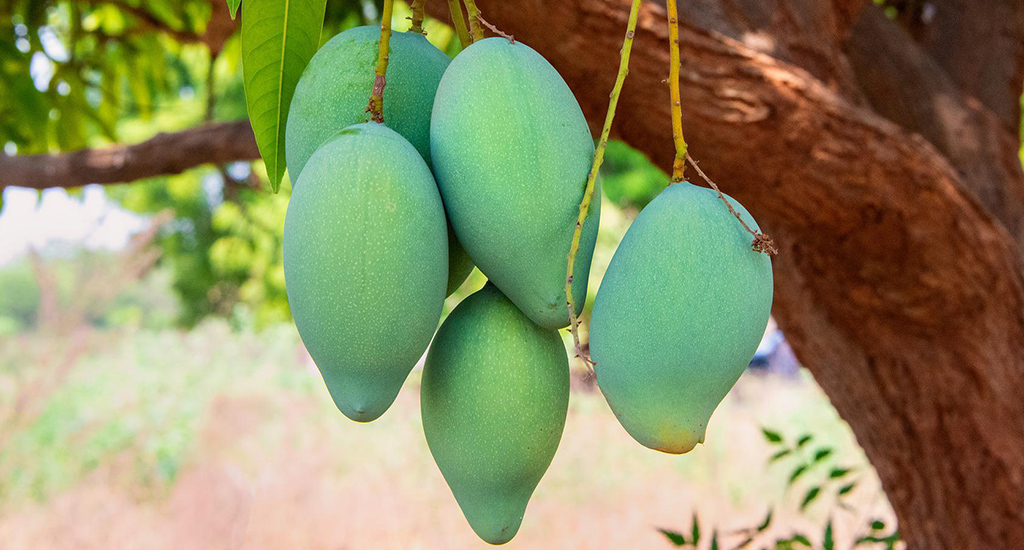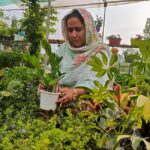Summer is the season for luscious mangoes. Mangoes of all shapes, sizes and names have flooded the markets across India.
But not all is well with Odisha’s farmers who grow some of these mangoes.
Neelkantha Sisa has been a mango farmer for over four decades. While working in his farm in the Bangudipada village of the Koraput district, the 58-year-old said that this mango season was the worst so far.
“There are hardly any fruits in the trees. We’re going to suffer severe losses due to virtually no flowering this season,” said Sisa.
The 25 mango farmers in his village and others in neighbouring districts repeat the same story. They talk about likely losses this summer because there are hardly any flowers and fruits in their trees.
Odisha’s mango farmers suffer losses
And while this is not the first time their mango crops might fail them, the farmers are at a loss to know why.

Since 2019 when Cyclone Fani uprooted thousands of mango trees, Odisha’s mango farmers have been facing problems.
Many farmers said that the pandemic, coupled with this year’s poor production, has almost ruined them.
“The markets were closed due to the lockdown. Without transport facilities we couldn’t send the fruits to other states despite bumper production,” said Rashbihari Behera, a mango farmer. (ALSO READ: Supply to institutions helps FPOs sell mangoes during lockdown)
“But the situation is worse this year as 99% of the trees have not borne fruits,” he added.
Farmers also said that they have been suffering losses for the past four years and the government has not offered any support.

Conceding that farmers are staring at losses, government officials say that there is no mechanism for crop insurance for mango farmers.
The mangoes we grow sweeten the taste buds of thousands of mango lovers across the country. But it leaves us with a bitter taste.”
“The mangoes we grow sweeten the taste buds of thousands of mango lovers across the country. But it leaves us with a bitter taste,” Ashok Ghodai, a farmer of the Duruguda village told Village Square.
Reduction in mango yields
Odisha primarily produces Banganapalli, Dasheri, Amrapali, Chaunsa, Langra, Mallika and Totapuri varieties. These are much in demand within the state and are also supplied to Delhi, Madhya Pradesh and other regions.
As per data obtained from the state’s Directorate of Horticulture, Odisha is one of the leading mango producers in the country. Odisha’s mango production was 8,47,705 tonnes in 2020-21. The total area under mango production is 2,18,444 hectares with over 5 lakh farmers involved in mango farming in all the 30 districts of the state.

After planting, it takes a minimum of five years to get fruits for commercial sale, according to farmer Sunil Barik.
“The trees start flowering in February followed by fruiting in March that turn ripe by May or June,” he said.
Behera’s 500 trees yielded a bumper production of nearly 70 tonnes in the past two years. He expects the production to be a small percentage this year.
Sisa’s 15 trees yielded 9 tonnes (9,000 kg) last year.
“But this year it would be hardly 200 kg. I don’t know why nature is punishing us like this,” said Sisa.
Is climate change reducing mango yields?
Government officials agree that this has not been a fruitful year.
“This year’s production would not even be half of last year’s. We’re monitoring the situation. We suspect climate change to be the reason behind it,” said Ranjan Kumar Panda, assistant director of horticulture, Koraput district.

But he also put blame on the farmers, saying their lack of care was a reason for the low yield.
“They do not supply adequate water to the trees through drip irrigation. They use less pesticides and fertilisers that affect the production,” Panda told Village Square.
But farmers said that they watered and applied fertilisers as recommended.
Scientists, however, refuse to pin the blame completely on farmers and attribute low production to drastic climate change.
“Around 80% of the farmers in the state don’t have drip irrigation. They don’t use adequate fertilisers. Still it has been a bumper production over the last few years,” pointed out Sanjay Kumar Pradhan, scientist (horticulture) at Krishi Vigyan Kendra (KVK), Rourkela.

“Temperature variation due to climate change is causing a drastic fall in production. There are hardly any mangoes available in the market and the prices are too steep. Overproduction in the past few years could also be the reason for poor output this year, but it is too early to arrive at any conclusion,” he told Village Square.
While the experts are yet to find the reason, farmers are struggling with the low yield.
“I depend heavily on my 50 mango trees to earn money. We grow millets and paddy only for self-consumption This year we can’t even think of taking the mangoes to the market as our harvest won’t even cover the transportation cost,” rued farmer Trinath Badnayak.
The lead image at the top of this page shows mangoes waiting to be harvested (Photo by Mohan Nannapaneni, Pixabay)
Gurvinder Singh is a journalist based in Kolkata.








